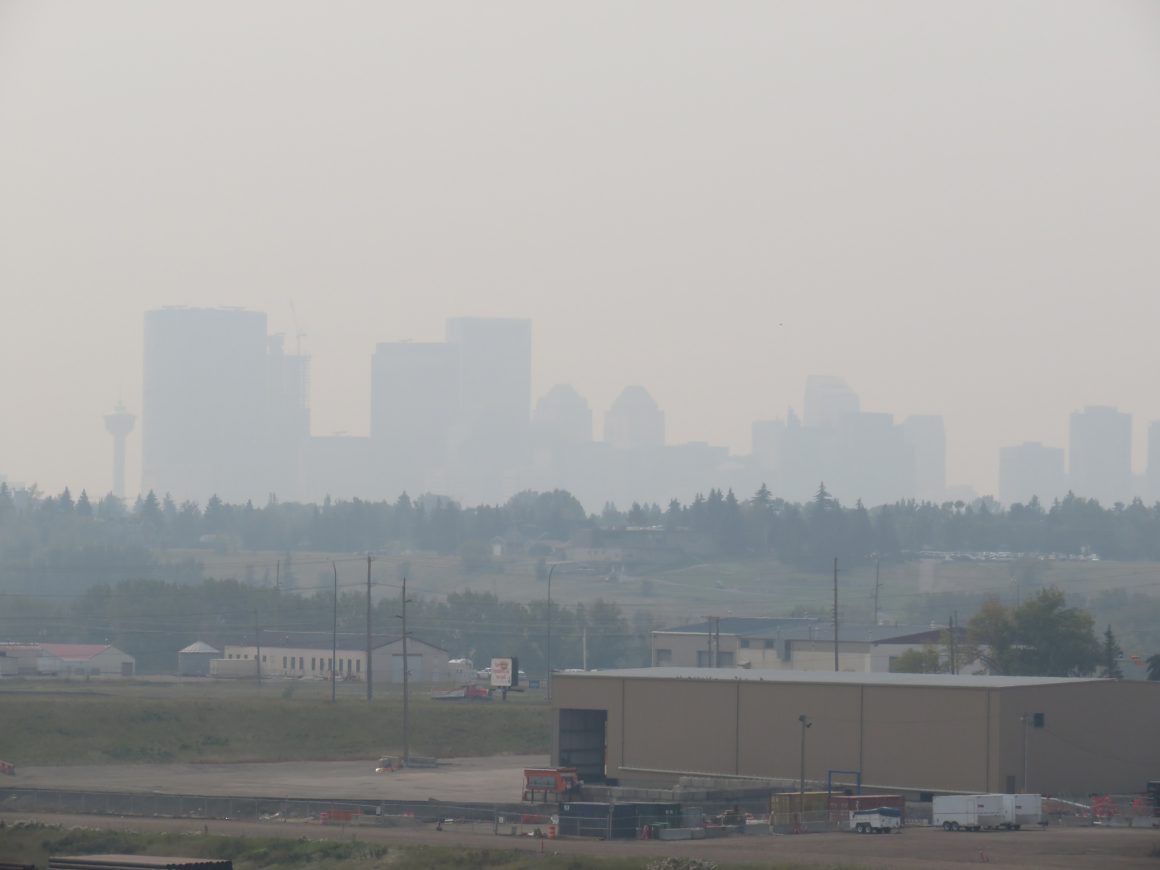
Choking in smoke: record-setting fire season in B.C. underscores dangers of climate change
By Devin Aggarwal, September 6 2018 —
It’s official: 2018 is the worst year for forest fires ever recorded in British Columbia. Thousands of square kilometres of forest have burned, bringing with it the destruction of property and creating enough smoke to be visible from space. The smoke covered almost the entire western half of the country, triggering air quality warnings as far east as Manitoba. It decreased visibility, darkened the skies and ushered in a 24-hour twilight.
Yet, even living in these apocalypse-resembling circumstances, there’s a sense of déjà vu. At some point between May and August each year, we barricade ourselves indoors to escape the heat and smoke. Was it not just last year we told ourselves that it would be better next year? That next year, we would be able to go outside, that there is nothing left to burn?
Although 2018 is the worst fire season ever recorded in B.C., last year was the second worst. Out of the top-10 fire seasons in B.C. since 1950, half of them have occurred within the last decade. In order of severity, they are 2018, 2017, 2014, 2010 and 2015. That’s not even mentioning the monster wildfires in Alberta, such as the unforgettable 2016 Fort McMurray fire.
It’s not just in Canada — fires are burning around the globe, stoked by an increasing number of hot, dry summers. And it’s not ‘just weather.’ We are experiencing record-setting hurricanes, rising seawater levels and devastating droughts.
We already know these things but shrug them off, dismissing them as an anomaly. After Hurricane Harvey last year, the United States government ignored how above-average sea temperatures caused by climate change supercharged the hurricane, massively increasing its destruction. Instead, U.S. President Donald Trump sent his usual “thoughts and prayers” to the people of Texas and promised aid. Promptly afterwards, he removed the words “climate change” from a four-year plan by the Federal Emergency Management Agency on disaster recovery and prevention.
Despite the great losses we face after a natural disaster, both economically and personally, we ignore the root cause of the problem. We don’t think enough about climate change, even though it is the greatest challenge humanity has ever faced. The growing intensity and frequency of natural disasters call upon climate change to be prominently blamed for its role in the event. At the beginning and end of every story about the land, money and lives that are lost, we need to see the words, “This is our doing. Human-caused climate change is responsible.”
Sure, many of these events would happen without the influence of climate change, but that’s not the point. The number and severity of natural disasters have increased, causing pain and suffering to people who otherwise wouldn’t be affected. And that is simply not acceptable.
Floods are the new normal. Hurricanes are the new normal. Wildfires are the new normal. Only a fundamental societal shift can ever hope to change that. We need everyone to get angry at our preventable losses. We need to assign blame to the root cause of these problems and spread knowledge of this blame. The death and destruction brought by these events cannot be wiped from our conscience, as what our society is doing has contributed to their demise.
We’re getting there, though. As reported in the Economist, a poll of people from 38 countries found that 61 per cent recognize that climate change is a big threat. But it seems that those with the power to really make a difference are part of the 39 per cent.
By harnessing anger and infusing it with ingenuity, we can save our world — we just need some help to take the first few steps.
